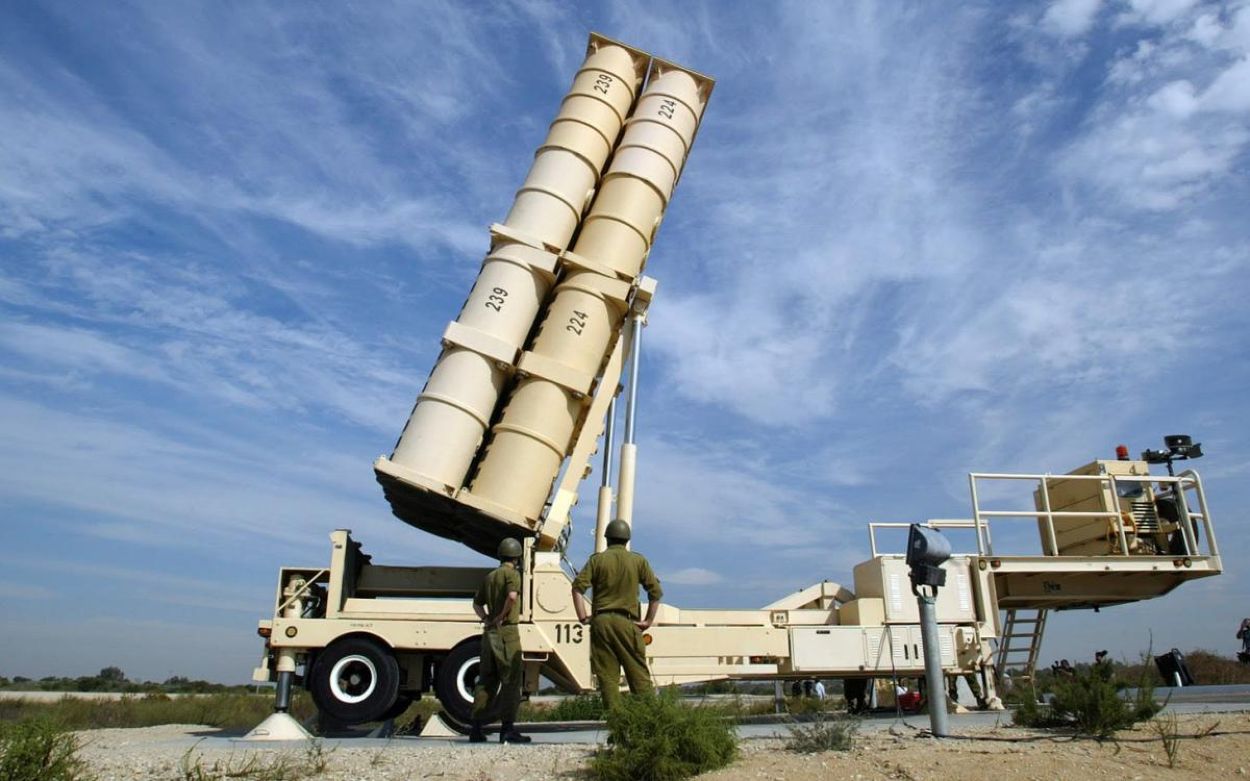More than a year after it first expressed interest in purchasing the Israeli system, Germany has finally signed a letter of commitment with Israel to buy the Arrow-3 missile defense system at nearly US$ 4.2 billion.
German Defense Minister Boris Pistorius and his Israeli counterpart Yoav Gallant announced at a joint press conference held on September 28 that the agreement, the largest defense sale Israel has ever made, comes in the wake of a European arms buildup in response to Russia’s invasion of Ukraine.
The 100-billion-euro special defense fund the German government established last year in response to Russia’s attack on Ukraine will be used for the purchase. It is anticipated that the Arrow-3 system will be delivered starting in the fourth quarter of 2025, with initial operational capability planned for the fourth quarter of that same year, according to the German Ministry of Defense (MoD).
Pistorius stated in the joint press conference that the Arrow system would “prepare German air defense for the future,” protecting Germany from ballistic missiles. The weapon system, he continued, will be a component of NATO’s Integrated Air and Missile Defense, providing defense for Germany’s neighbors.
When combined with the Bundestag’s budget committee’s approval in June, Pistorius described signing the joint declaration of intent with Israel as a first step in acquiring the Arrow Weapon System (AWS). The US government approved the sale of the AWS to Germany in August, paving the way for its sale.
Was #Arrow3 ist und wofür wir das System brauchen, beschreiben wir im Artikel: https://t.co/ueF3qVSJgy pic.twitter.com/JOPKWy6voQ
— Team Luftwaffe (@Team_Luftwaffe) September 29, 2023
A day after the signing of the statement, the German Air Force Luftwaffe published a video of the AWS alongside an elaborate article describing how the system would aid Germany’s air defense as it seeks to build a protective air defense layer for itself and its partners in Europe.
Describing the security situation in Europe, the article written in Deutsche says it has deteriorated since Russia annexed Crimea in 2014. It says, “Along with Russia’s war against Ukraine and the Russian president’s threats to further escalate the attacks, the threat to Germany and its allies from long-range missiles has become increasingly clear.”
Then, it highlights its capability by noting that Germany currently has ground-based systems to protect against threats from the air, including the Patriot weapon system and the Light Air Defense System. In addition to the ground-based systems, it flies air defense sorties using Eurofighter Typhoons.
Both ground-based systems, however, are intended to protect individual objects, groups of objects, or rooms with an effect in the so-called lower layer. It then highlights that the Arrow-3 would bolster the country’s ability to detect aerial threats, especially in the upper layer and well above 100 kilometers of altitude.
The Bundeswehr then links Germany’s purchase of the Arrow-3 with its long-standing European Sky Shield Initiative. It said that Chancellor Olaf Scholz’s European Sky Shield Initiative intends to increase the number of operational air defense systems in Europe that are available across the continent and that can cooperate.
Therefore, Germany is purchasing IRIS-T SLM in addition to the already introduced weapon systems. Then, it makes the most significant observation: “To date, the Bundeswehr does not have any systems capable of protecting the territory of the Federal Republic of Germany against long-range missiles. This is where Arrow comes into play.”
Germany’s Air Defense Shield For Europe
The Arrow missile defense typically comprises the top layer of Israel’s missile defense system, consisting of the long-range Arrow-3 missiles and the Iron Dome short-range rocket interceptor. The Arrow-3, for one, can reach and destroy any non-conventional warhead at a safe altitude.
The Arrow-3 is a ballistic missile interceptor intended to intercept ballistic missiles outside of the Earth’s atmosphere, in contrast to missile defense systems like the Patriot in Germany’s arsenal. According to military experts, the system’s deployment across Western Europe will offer the area an exceptional capability.
The German Bundeswehr says that the federal government decided last fall to procure the Israeli Arrow missile defense system to defend against long-range ballistic missiles because of the increasing threat from medium- and long-range missiles.
The Bundeswehr noted in its recent article that a 360-degree defense shield would cover Germany once the Arrow is acquired, allowing the country to protect itself, its people, and its vital infrastructure from long-range missiles. Even though the system is entirely domestically purchased, the European component of NATO’s air defense power will be enhanced at the same time.

Berlin also wants to extend this air defense to more significant parts of Europe as it strives to build a German-led ‘Sky Shield’ air defense layer.
Speaking in Prague last year, Chancellor Scholz said, “If we jointly develop an air defense system in Europe, it will not only be more efficient and cost-effective. It would also be a security gain for Europe and an outstanding example of strengthening the European pillar within NATO.”
At the time, he noted that Poland, the Baltic States, the Czech Republic, and the Scandinavian countries could be other additional countries for integration into the planned layered air defense.
Moreover, the conflict in Ukraine has made NATO’s lack of ground-based air defense systems, such as Raytheon Patriot units, abundantly clear. Around 36 Patriot units were deployed in Germany during the Cold War. The German military is only about 10 to 12 strong, with some stationed in Slovakia and other countries.
On top of the air defense systems in its arsenal, the Arrow-3 will be a crucial addition for Germany. While Patriot and IRIS-T (still to be acquired by the military) cover the medium layer of air defense, Arrow-3 would seemingly protect the higher layer.
- Contact the author at sakshi.tiwari9555 (at) gmail.com
- Follow EurAsian Times on Google News




